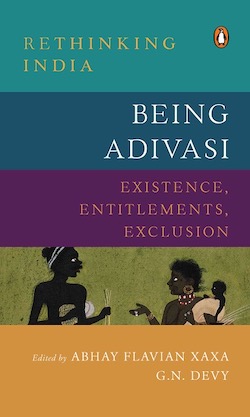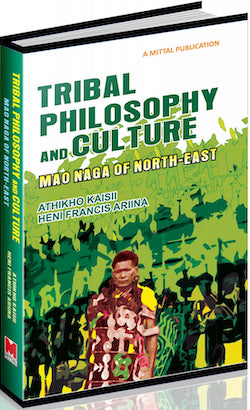Abstract 5: Oral Literature and Memory: A Study of Tribal Folklore
Paper presented for “Tribes In Transition-II: Reaffirming Indigenous Identity Through Narrative” (National Conference) – New Delhi
ATHIKO KAISII
Centre for Culture, Media & Governance, Jamia Millia Islamia, New Delhi
KEYWORDS: FOLKLORE, INTERPRETATION, MEMORY, TRADITION, IDENTITY
Oral literature does not stress authorship but the focus is on interpretation. It is collectively owned by the community and every member has the right and authority to interpret and translate as per one’s ability and genius to the best to make it accurate and appropriate. Since the literature is not preserved/stored in the form of text and print, interpreting and translating from memory that has been handed down from generation to another is the only way to obtain accuracy. The interpretation is essentially based on memory as there is no written text to depend. Memory plays a significant role in unfolding and revealing the tribal literature. Looking back the memory is the source to resolve the differences while interpreting.
Folklore in the form of adages, sayings, riddles, dances, songs, festivals and feasts, agricultural practices, handicrafts, woodcrafts, carpentry works, yells, steps and cries, knowledge and skill of constructing house, terrace field, bridge, caring and nursing of sickness and diseases, believes, worldviews and cosmos or anything that one can name of constitute oral literature, which is passing and communicating through oral mode. So, folklore is anything that includes traditional art, literature, knowledge and practice, which are disseminated through oral and behavioural mode of everyday life. Every community and group possessed a shared tradition and culture, which is central to its identity that differentiates from those does not belonged to it, is the folklore of the community. The folklorist work’s merely reflects everyday life of the tribal community. The paper while intending to focus the understanding of literature from the broader perspective, will tries to investigate how memory unveiled and unfolded the body of tribal literature through folklore.
BIONOTE: Dr. Athikho Kaisii is currently employed as Assistant Professor at the Centre for Culture, Media & Governance, Jamia Millia Islamia, New Delhi. He may be contacted at the email ID: akasmao@gmail.com
Source: Book of Abstracts for the ICSSR-sponsored Two-Day National Conference Tribes In Transition-II: Reaffirming Indigenous Identity Through Narrative organised by The Department of English & Outreach Programme Jamia Millia Islamia (New Delhi, 27-28 February 2017)
Courtesy: Convener Dr. Ivy Imogene Hansdak
Emerging globalized world is partly responsible for undervaluing the philosophy and traditions of the traditional community. This process led them to undergo cultural crisis and philosophical stigma. The outcome is the polarisation of human society and civilization into culture and uncultured, democratic and undemocratic, civilized and uncivilized, and so forth. It functions within the calculate strategy of the dominant ideologies so as to perpetuate hegemonic domination. The edited volume Tribal Philosophy and Culture: Mao Naga of North-East seeks to emphasize on relook the vitality of cultural practices and traditions to face the onslaught of this phenomenon. The study of oppositional yet phenomenal relationship of philosophy and culture will not only define the identity of a community but also may suggest alternative means when the world community at large is undergoing huge “value crisis.” While keeping this interacted liaison in mind, the edited volume, with articles from scholars across disciplines attempted to address certain topical issues from the insider perspective. The articles ranges from dwelling philosophical world of myths and narratives, social and political issues, media and education, women’s issues and their role in peace building, stretching to ecology and environmental issues. Overall, the book reflects the dynamic aspects of understanding and interpreting the cultural practices of the Mao community.
Athikho Kaisii (b. 1975) hailed from Charanghomei (Shajouba) has completed his doctorial degree in 2005 in the Centre for Study of Social systems, School of Social Sciences, Jawaharlal Nehru University, New Delhi. To his credit, he has published few articles in journals and in an edited volume. In the fast meditated age, issues concerning with justice, governance and youth are some of the areas of his interest. Presently, he is teaching as an Assistant Professor in the Centre for Culture, Media and Governance, Jamia Millia Islamia, New Delhi.
Source: Publisher’s discription: “Tribal Philosophy and Culture: Mao Naga of North-East”, Mittal Publications
URL: https://mittalbooks.com/products/tribal-philosophy-and-culture
Date Visited: 23 June 2022
[Bold typeface added above for emphasis]
Find scholarly books, poetry and fiction relating to tribal culture – Indian publishers
List of sites covered by this Google custom search engine
To find children’s and educational books or search Indian periodicals, magazines, web portals and other sources safely, click here >>
Search tips
Combine the name of any particular state, language or region with that of any tribal (Adivasi) community.
Add keywords of special interest (music, poetry, dance just as health, sacred grove and biodiversity); learn about the rights of Scheduled Tribes such as the “Forest Rights Act” (FRA); and the United Nations “Declaration on the Rights of Indigenous Peoples”, “Universal Declaration of Human Rights”, “women’s rights”, or “children’s right to education”.
Ask a question that includes “tribal” or “Adivasi”, for instance: “Adivasi way of life better?” (or “tribal way of life worse?”)
Specify any particular issue or news item (biodiversity, bonded labour and human trafficking, climate change, ecology, economic development, ethnobotany, ethnomedicine, global warming, hunter-gatherers in a particular region or state, prevention of rural poverty, water access).
For official figures include “scheduled tribe ST” along with a union state or region: e.g. “Chhattisgarh ST community”, “Himalayan tribe”, “Scheduled tribe Tamil Nadu census”, “ST Kerala census”, “Particularly Vulnerable Tribal Group Jharkhand”, “PVTG Rajasthan”, “Adivasi ST Kerala”, “Adibasi ST West Bengal” etc.
In case the Google Custom Search window is not displayed here try the following: (1) toggle between “Reader” and regular viewing; (2) in your browser’s Security settings select “Enable JavaScript” | More tips >>
Note: hyperlinks and quotes are meant for fact-checking and information purposes only | Disclaimer >>
Find publications by reputed authors (add “open access” for freely downloadable content)
Research the above issues with the help of Shodhganga: A reservoir of theses from universities all over India, made available under Open Access >>
Tip: to find books released by Indian publishers type the name of author in combination with “tribal” or “Adivasi” or include name of an Indian State, Union Territory or region (e.g. “Bastar”, “Northeast India”, “Nilgiri”).
Technical support
Try the following in case Google Custom Search window or media contents are invisible here: (1) switch from “Reader” to regular viewing; (2) in browser’s Security settings select “Enable JavaScript”; (3) check Google support for browsers and devices | More >>

Search publications via Indian publishers & libraries:
Virginius Xaxa & Ganesh Devy or G.N. Devy >>
Learn more
Crafts and visual arts | Fashion and design | Masks
eBooks, eJournals & reports | eLearning
eBook | Background guide for education
Forest dwellers in early India – myths and ecology in historical perspective
Himalayan region: Biodiversity & Water
History | Hunter-gatherers | Indus Valley | Megalithic culture | Rock art
Languages and linguistic heritage
Modernity | Revival of traditions
Tribal Research and Training Institutes with Ethnographic museums
